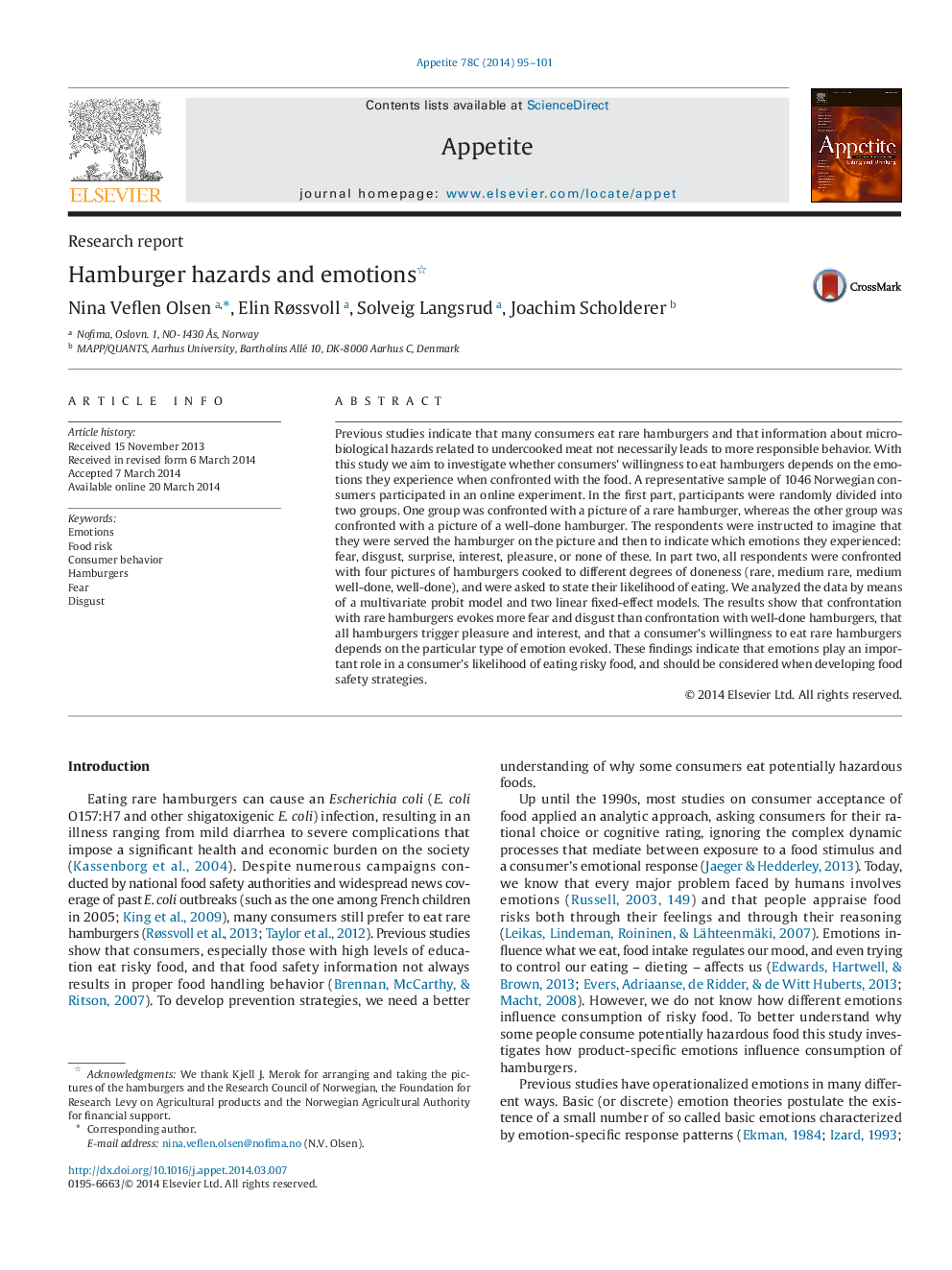| Article ID | Journal | Published Year | Pages | File Type |
|---|---|---|---|---|
| 939583 | Appetite | 2014 | 7 Pages |
•Willingness to eat rare hamburgers depends on the type of emotion evoked•Rare hamburgers evoke more fear and disgust than well-done hamburgers•All hamburgers trigger pleasure and interest•Emotions should be a consideration when developing food safety strategies
Previous studies indicate that many consumers eat rare hamburgers and that information about microbiological hazards related to undercooked meat not necessarily leads to more responsible behavior. With this study we aim to investigate whether consumers’ willingness to eat hamburgers depends on the emotions they experience when confronted with the food. A representative sample of 1046 Norwegian consumers participated in an online experiment. In the first part, participants were randomly divided into two groups. One group was confronted with a picture of a rare hamburger, whereas the other group was confronted with a picture of a well-done hamburger. The respondents were instructed to imagine that they were served the hamburger on the picture and then to indicate which emotions they experienced: fear, disgust, surprise, interest, pleasure, or none of these. In part two, all respondents were confronted with four pictures of hamburgers cooked to different degrees of doneness (rare, medium rare, medium well-done, well-done), and were asked to state their likelihood of eating. We analyzed the data by means of a multivariate probit model and two linear fixed-effect models. The results show that confrontation with rare hamburgers evokes more fear and disgust than confrontation with well-done hamburgers, that all hamburgers trigger pleasure and interest, and that a consumer's willingness to eat rare hamburgers depends on the particular type of emotion evoked. These findings indicate that emotions play an important role in a consumer's likelihood of eating risky food, and should be considered when developing food safety strategies.
